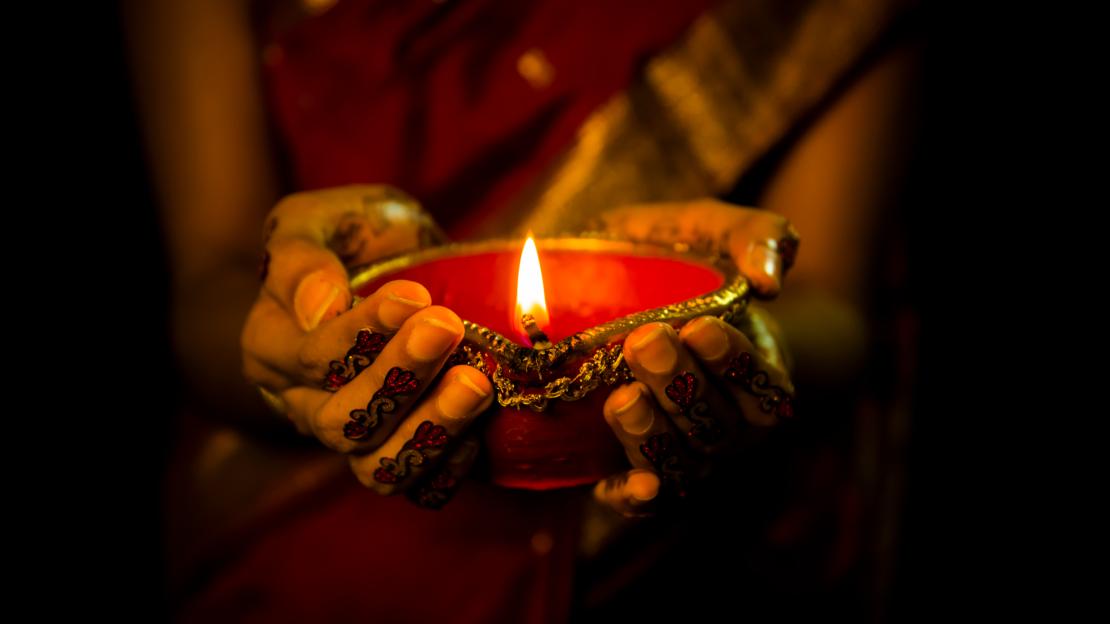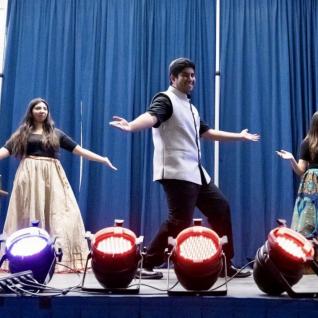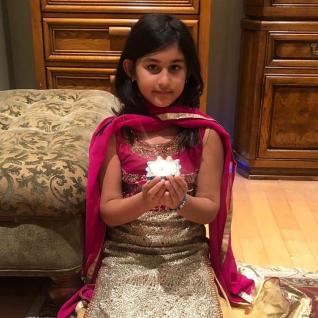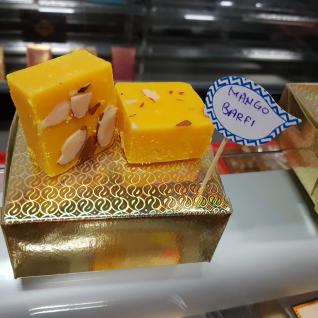As a child growing up in Mumbai, India, what Rohil Kishinchandani remembers most about Diwali is bursting firecrackers with his friends.
“We would meet up and set them off in a huge chain. It probably wasn’t the safest thing, but it was a lot of fun,” says Kishinchandani, a fourth-year Management Co-op student at U of T Scarborough.
While lighting firecrackers are popular during Diwali, Kishinchandani also enjoyed spending time family and friends, sharing food, and eating sweets, his personal favourite being malai barfi, a traditional creamy fudge often served during Indian festivals.
Kishinchandani, who was president of the U of T Scarborough Indian Students’ Association in 2018-19, would normally host Diwali celebrations on campus full of music, dancing and traditional food. This year he will host a small gathering at home instead.
Diwali, often referred to as the Indian festival of lights, is an annual festival celebrated in South Asia. It’s observed by Hindus, Sikhs, and Jains and lasts five days, with the third day (this Saturday) considered the most important. During the holiday, families typically gather to pray, light candles, eat sweets and place lit lamps called diyas in the windows and doorsteps of their homes. Diyas symbolize goodness, and lighting them represents moving out of darkness into light.
“Diwali is all about forgiving and forgetting and starting afresh as people celebrate with freedom, festivity, and friendliness everywhere,” says Kishinchandani.
This year, festivities are likely be a little more subdued than usual, with intimate family gatherings and virtual events replacing larger public events due to the COVID-19 pandemic.
During Diwali I try to think about the good in the world. Whatever darkness we are experiencing in life, I always try to remember there’s an internal light guiding you
Members of the Hindu Students Council (HSC) at U of T will be celebrating Diwali by installing seven murtis in the Multi-Faith Centre on the St. George campus. A murti is a statue that is a symbolic representation of a Hindu deity and can be found in Hindu Temples where they are involved in a puja, which is a form of ritual worship.
Himanshi Sehgal, HSC president, says the murti project began in February when she was contacted by the Multi-Faith Centre about setting up an appropriate space to worship. After setting up an organizing committee of eight students, they were able to raise funds from 67 donors across Canada.
“For Hindus, prayer is an important part of Diwali,” says Sehgal, a fourth-year actuarial science and economics student on the St. George campus.
“I think being able to install the murtis and provide Hindu students a place to gather and worship on campus is a meaningful way to celebrate.”
At U of T Scarborough, staff and students with Student Housing and Residence Life have been busy preparing a virtual Diwali celebration that will take place Friday evening. Supplies to paint diyas, battery-powered candles and traditional Indian sweets will be delivered to students living in residence who registered for the event, while the virtual component will also include authentic Indian music.
For Sischa Maharaj, assistant director of external relations and communications in the department of management at U of T Scarborough, Diwali is all about celebrating with family. As a child growing up in Trinidad, she vividly remembers spending hours lighting row after row of diyas, and being responsible for keeping them burning bright. Another tradition was gathering at her aunt’s house to enjoy food and Indian sweets like jalebi, and home-made prasada, a vegetarian food that is used as a religious offering.
A typical Diwali celebration for her in Canada involves fasting for nine days, decorating her house, lighting dozens of diyas, singing bhajans (devotional songs) in the temple, prayers, and then cooking up a storm to celebrate with her extended family.
She says this year will be a little different. Instead of a large in-person gathering, she will deliver homemade prasada and food and then virtually connect with her extended family instead. Fewer diyas will be lit, but she still plans to fast with her husband, cook up a vegetarian feast with her mother-in-law, and decorate her house with her two daughters.
Despite the change in plans, for Maharaj the spirit of the holiday remains the same.
“During Diwali I try to think about the good in the world. Whatever darkness we are experiencing in life, I always try to remember there’s an internal light guiding you,” she says.
“We all have a choice to be kind to others, and to bring a light into other people’s lives. That’s what Diwali means to me.”



